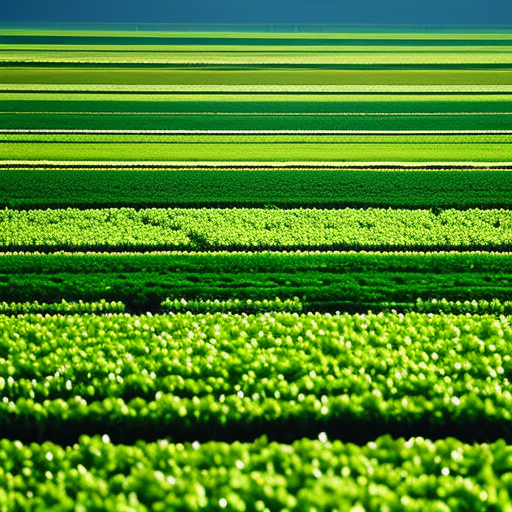Agronomy: A Comprehensive Overview
Agronomy is a branch of agricultural science that focuses on the study of crop production and soil management. It encompasses various aspects of plant biology, soil science, and environmental science to optimize agricultural practices and maximize crop yields. Agronomists work to develop sustainable and efficient methods for growing crops, taking into account factors such as climate, soil conditions, and pest management.
What is Agronomy?
Agronomy is the science and practice of growing and managing crops for food, fiber, and fuel production. It involves understanding the interactions between plants, soils, and the environment to enhance agricultural productivity. Agronomists study plant genetics, physiology, and breeding to develop new crop varieties that are resistant to diseases, pests, and environmental stresses.
Key Areas of Agronomy
1. Crop Production: Agronomists study various aspects of crop production, including plant nutrition, irrigation, and crop rotation. They analyze soil samples to determine nutrient deficiencies and recommend appropriate fertilizers. Agronomists also develop strategies to optimize water usage and prevent soil erosion.
2. Soil Management: Soil is a crucial component of agronomy. Agronomists study soil properties, including texture, fertility, and pH levels, to determine the best management practices for different crops. They also analyze soil samples to identify potential contaminants and develop strategies for soil remediation.
3. Pest and Weed Management: Agronomists develop integrated pest management strategies to control pests and weeds while minimizing the use of chemical pesticides. They study pest life cycles, behavior, and population dynamics to develop effective control measures. Agronomists also research and promote the use of biological control agents, such as beneficial insects and microorganisms, to manage pests and weeds.
4. Sustainable Agriculture: Agronomy plays a vital role in promoting sustainable agricultural practices. Agronomists work towards reducing the environmental impact of agriculture by developing methods that conserve soil and water resources, minimize chemical inputs, and promote biodiversity. They also study the impact of agricultural practices on climate change and develop strategies to mitigate greenhouse gas emissions.
Tools and Techniques in Agronomy
Agronomists utilize a range of tools and techniques to improve crop production and soil management:
1. Remote Sensing: Remote sensing technologies, such as satellite imagery and drones, are used to monitor crop health, detect nutrient deficiencies, and identify areas of pest infestation or disease outbreaks. This information helps agronomists make informed decisions about crop management.
2. Precision Agriculture: Precision agriculture involves the use of technologies like GPS, sensors, and data analytics to optimize agricultural practices. Agronomists use these tools to map soil variability, monitor crop growth, and apply inputs, such as fertilizers and irrigation, in a targeted manner, reducing waste and increasing efficiency.
3. Genetic Engineering: Genetic engineering techniques, such as gene editing and genetic modification, are used to develop crop varieties with improved traits, such as disease resistance, drought tolerance, and increased yield. Agronomists work on developing genetically modified crops that can address specific challenges faced by farmers.
Career Opportunities in Agronomy
Agronomy offers a wide range of career opportunities in both the public and private sectors. Agronomists can work as researchers, consultants, educators, or managers in various agricultural organizations, government agencies, research institutions, and agribusiness companies. They play a crucial role in developing and implementing sustainable agricultural practices to ensure food security and environmental sustainability.
In conclusion, agronomy is a multidisciplinary field that combines plant biology, soil science, and environmental science to optimize crop production and soil management. Agronomists work towards developing sustainable and efficient agricultural practices, taking into account factors such as climate, soil conditions, and pest management. With the use of advanced tools and techniques, agronomy continues to evolve and contribute to the development of innovative solutions for the challenges faced by modern agriculture.












